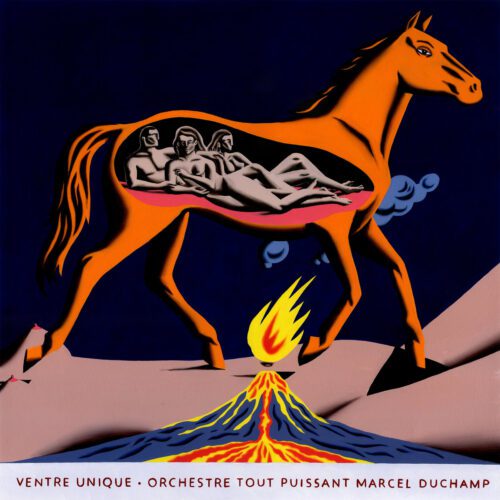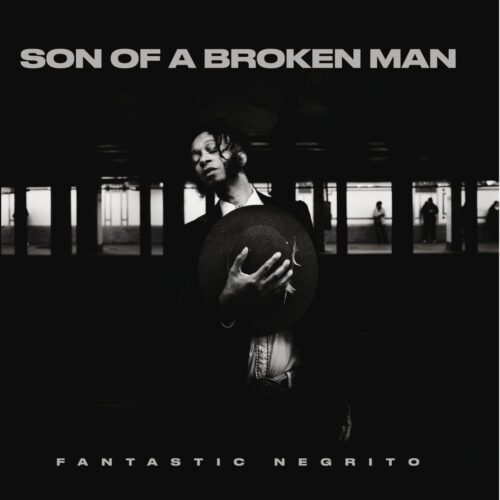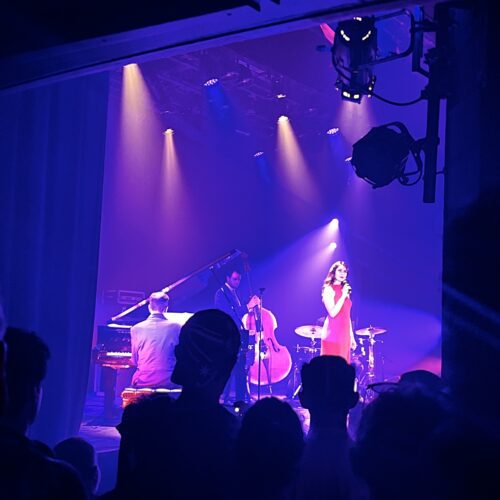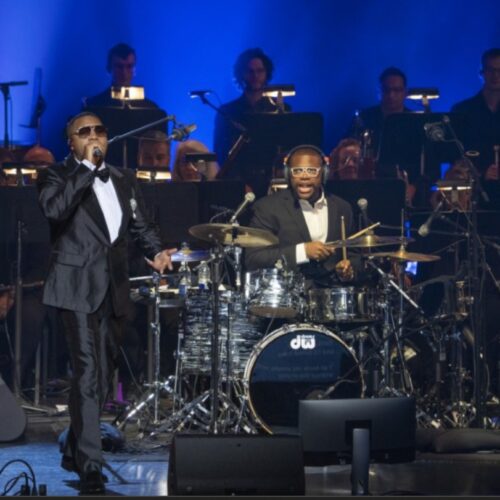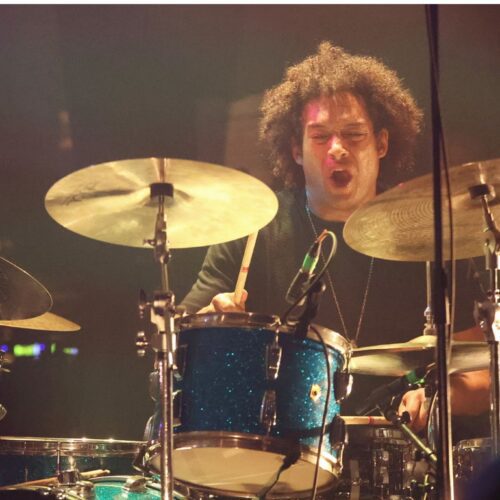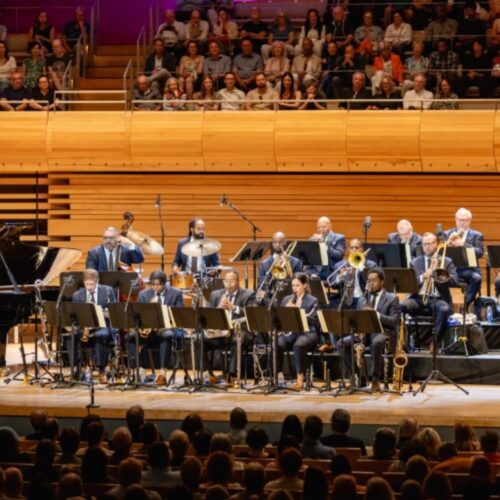Advances on the Internet are revolutionizing the sharing of rights for music creators and performers. Irreproachable and impartial in their application, i.e. perfectly in line with the provisions of the agreements concluded between the parties, these intelligent contracts are now possible in a digital environment. The advent of the web-based blockchain now makes it easier to distribute them in a complex manner.
Cue the advent of Smartsplit, a new service that a company founded by Guillaume Déziel developed. Thanks to this new service, creators and performers of intellectual works could significantly improve the efficiency of sharing the profits generated by their work.

The idea of the intelligent contract has its roots in an original agreement that was struck by the group Misteur Valaire, with whom Déziel had business ties, and the Orchestre Métropolitain de Montréal. In 2014, 59 musicians of the Orchestre Métropolitain under the direction of Yannick Nézet-Séguin, flanked by 200 young choristers from the École Joseph-François-Perrault, treated an audience to symphonic adaptations of 20 songs by Misteur Valaire, with the band’s participation and arrangements by Olivier Hébert. Presented at l’Église Saint-Jean-Baptiste, the concert was recorded by a team from Radio-Canada. Recently released, an album is now available.
At the end of the 2014 performance, the recording of the concert was sold to the Orchestre Métropolitain, Yannick Nézet-Séguin, and Misteur Valaire, who chose to split the rights and revenues. Why such an arrangement, this time economic? Since the Valaire gang could not afford to pay recording fees and resale rights to the 66 musicians involved, it was proposed that the income from the co-production be shared collectively. With the endorsement of the Quebec Musicians Guild, the intelligent contract was born.
More specifically, arranger and composer Olivier Hébert was entitled to a share of the copyright of his symphonic version of the work. The associated rights of the performers of the work during the sound recording were divided equally among all on stage. These same performers were designated co-producers of the sound recording, in equal shares. Finally, the choir of 200 young people accepted a symbolic percentage of the profits, this time for the Joseph-François-Perrault School Foundation. One can’t be sure whether all these fine people filled their piggy banks with the revenues from this recording, but the nature of the agreement heralded a small revolution in the distribution of rights.
“The great particularity of Smartsplit,” explains Déziel, “lies in its user experience (UX). It’s not designed by and for rights administrators, but for artists. Right from the start, they have to ask themselves, who created what on a musical piece? Who played what on the sound recording? Who owns the sound recording, that is, who paid for it to happen? Once the creators, writers, composers, performers, and co-producers have agreed on the sharing of rights, two things are done: first, a beautiful PDF agreement is made available to them, ready to sign; second, the agreement is published on a blockchain to freeze it in time, so that the trace is indelible.”
Um… could we get a better picture of the mechanics of an intelligent contract?
“We use common centralised technologies, as any good web platform can do,” Déziel continues. “However, as soon as there is an agreement between the rights holders, we use decentralized technologies to make the automated application of the intelligent contract possible, i.e. to crystallize the agreement and proceed with the sharing of rights. We then use ERC-998-type tokens to write the agreement (in Solidity code) on Ethereum’s blockchain.”
Tokens? Blockchain? Ethereum? What does it eat in winter?
Ethereum is a decentralised exchange protocol allowing the creation of intelligent contracts by its users. These contracts are based on a computer protocol allowing to verify or implement a mutual contract. They are deployed in a blockchain which allows their consultation. A blockchain, in fact, is a technology for the storage and transmission of information without a control body. The information provided by users and internal links are checked and grouped at regular time intervals into blocks, thus forming a chain. The Ethereum exchange protocol uses a unit of account, the purpose of which is to apply the provisions of the intelligent contract and to pay the entitled parties.

A player in the Quebec music industry, Guillaume Déziel saw in the advent of the blockchain a solid development model for the evolution of intellectual property in a digital environment. Needless to say, intellectual property has been in bad shape over the past 20 years or so; the overwhelming domination of the web giants has considerably weakened content creators, and alternatives are slow to emerge by which artists, who are overwhelmingly living with precarity in the digital era, can find their way back to prosperity.
“Only an open blockchain,” says Déziel, “can allow several players, regardless of their nature, political allegiance or commercial interests, to interact. We’ve seen enough turf wars in the music industry that we thought we’d go there to play above the fray.”
In this way, Smartsplit promotes the sharing of rights. The services offered by the company consist in making the agreements concluded between the right holders of works concrete: drafting, links with collective rights management societies, publication on legal deposit, publication of metadata on works (credits, etc.) to maximise their discoverability, protect the works, provide all the necessary information to right holders on the provisions of their agreements and the application of their intelligent contracts. The list goes on…
“One of our great strengths,” says Smartsplit’s spokesperson, “is to offer a user experience that respects the learning curve of artists and craftspeople. You don’t come into the world knowing what a distribution key or a public performance is. So we strive to use terms that are understandable to everyone, far beyond accountants, lawyers, and publishers.”
And who are Smartsplit’s customers?
“Before launching GarageBand,” recalls Déziel, “Steve Jobs was inspired by a market study revealing that half of households had at least one musician. Our clientele is there. According to data published by the Society of Composers, Authors and Music Publishers of Canada (SOCAN), 6572 new members were welcomed in 2016 by the rights collective, with annual growth of 6.1%. Also in 2016, 124,472 new works were reported to SOCAN in Canada alone. These works are in addition to a worldwide catalogue of 27 million available compositions. In another type of market, CD Baby distributes more than 9 million tracks in digital format; its Pro Publishing division administers more than one million works and acquires more than 25,000 new works per month. Finally, Bandcamp, a B2B online sales service, currently has 13.9 million tracks available for download, with average annual revenue growth of 174.94%. This growth in creation inevitably feeds the reflection on the sharing of their rights.”
What about competition from Smartsplit?
Guillaume Déziel points out that, “in the field of intelligent contracts in music, there are currently only nice ideas with millions behind them – nothing has been launched yet. As such, we’re ahead of the game. According to Gartner, which publishes its annual Hype Cycle, the massive adoption of decentralized technologies such as blockchain is expected between 2022 and 2027. We will be there. We will be ready.”
